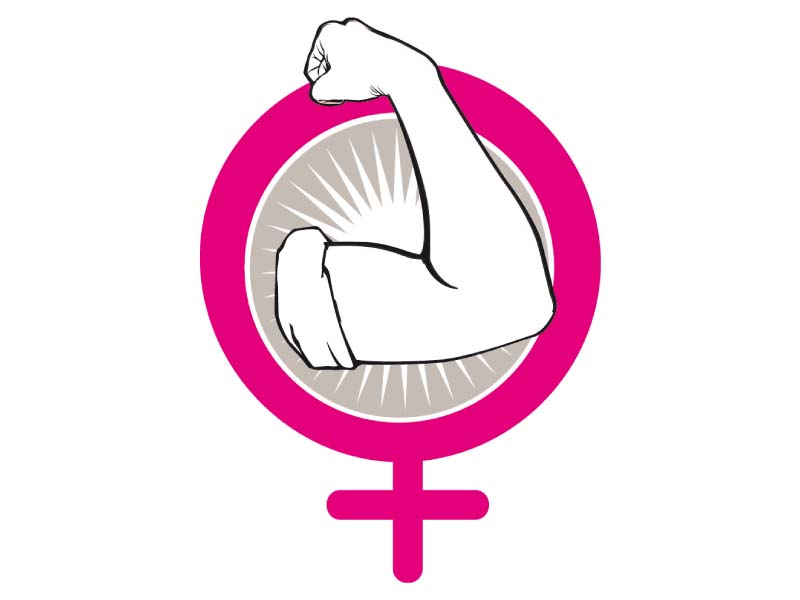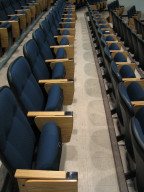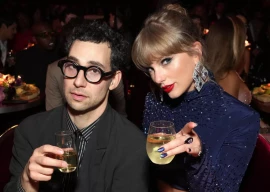
KARACHI/ DADU:
People call her Badshah Zaadi (princess). The name seems apt, seeing the respect she commands when solving problems faced by her community. Living in Bagri Muhalla of Dadu district, 65 year old Badshah Zaadi is an unexpected activist.
She has set a precedent by leading mobs, staging sit-ins and blocking off roads against injustice her people go through at the hands of government or local influential people. This bravery and boldness led her to win the councilor’s seat in the 2001 local government elections. She is a leader of sorts in her community, and even the men are led by this strong woman.
“When two minor girls from our community, begging on the road, were kidnapped a few years ago, we protested and blocked the National Highway. This pushed the local politicians and district administration to intervene and our girls were released. The same thing happened when our Mandir (temple) was demolished. Since then, no one has harassed us,” she says proudly, puffing away at the hookah.
“There are 800 plus registered voters from my community in this neighbourhood. Before I got elected, our people used to live in tents and makeshift houses. We had no drinking water, nor did the government provide us with sanitation. Men and women would go in nearby bushes for open defecation. Soon after I got elected as a councilor, I provided all these facilities to my people. The government has now built around three dozen houses as well,” she adds, as a group of men of her community stand by, nodding their heads in affirmation.
Badshah Zaadi belongs to the Bagri community (scheduled caste Hindus) which is considered matriarchal, where women mostly head the family and are more empowered than their male counterparts.
The empowerment of Bagri women can be measured from the fact that their men cannot dare to even inquire if their women fall in love with anyone. “If any man comes to meet a Bagri woman, her husband can leave the house but dare not argue. This is so unlike other communities in Sindh where women are killed under the pretext of Karo Kari,” says local journalist Wali Chandio.
In every sphere of life, the women of this community make key decisions. They manage financial matters, look after the kitchen and control everyday expenditure. Without the consent of these women, their men cannot make decisions regarding marriages of their children. It seems the role of the men in this community is confined to assisting their women.
“Much is written about discrimination against women, focusing on women being victims of widespread prejudice and being harassed, tortured, and killed under the pretext of Karo Kari. But hardly anyone notices the Bagri community which is liberal and unique in its fabric,” says Dr Lal Chand Ukrani, President PPP Sindh Minority Wing. It is fascinating that the Bagris are a peaceful community and not a single incident has ever been reported in which they have killed or threatened anyone, according to Ukrani.
“Bagris are one of the indigenous communities like Bheel, Menghwar and Kohli, but they (Babris) are nomadic and keep travelling in search of livelihood,” he says, adding that there are many tribes among the Bagris, and a majority of them have no personal property in Sindh.
“Some of them have now started living permanently at one place. Such folks may have purchased houses and land,” he said.
Most of the women and children of this community leave their houses for begging in the morning which is a major source of their income. Some of them cultivate the agricultural land. The Bagri women equally partake in the cultivation, and are the focal persons from the community when it comes to dealing with the landlords and marketing the products in the nearby towns. The men only work in the fields.
Papu and Reeta are both hardly 17 years old. The couple tied the knot about three months ago. Both sell balloons, but Reeta keeps all the money with her as she wants to purchase a plot. “We believe God has given barkat in women’s hands, which is why we rely on them to run the routine matters. This is the practice being followed in our community for centuries. Our forefathers did it too,” says Pappu.
Professor Dr. Najma Noor Phulpoto, Chairperson Sociology department Shah Latif University, said that since women have been breadwinners in Bagri community, their dominancy is a natural factor. “Bagri males are not so active; their women work hard and contribute majorly to running the house.”
However this peaceful community is often misunderstood due to their religious beliefs and uniqueness. “We are not allowed to use utensils at hotels. Our people prefer to take their own plates, cups and glasses whenever they travel,” says Moti Mal. “It is a common perception that Bagris eat wild cats and porcupines, and that lizard is their favourite dish, which is why Muslims do not prefer to share food and water with them,” says Wali Chandio. Moti Mal confirms that Bagri community used to eat reptiles, but now most of them have given it up. “There was a time when people of our community used to celebrate whenever they caught a wild cat or monitor lizard, but now they mostly eat chicken and vegetable.”
Published in The Express Tribune, February 8th, 2014.
COMMENTS (2)
Comments are moderated and generally will be posted if they are on-topic and not abusive.
For more information, please see our Comments FAQ






































1713525343-0/WhatsApp-Image-2024-04-19-at-4-09-16-PM-(1)1713525343-0-270x192.webp)
1713525453-0/Henry-Cavill-in-James-Bond-(AI)1713525453-0-270x192.webp)























0_o